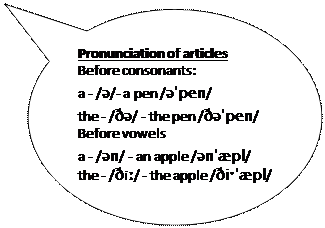Условные обозначения
| Текст | Тонограмма | ||
| Последний ударный (ядерный тон) | 、(LF) | Последний ударный (ядерный тон) | ╮(LF) |
| Последний ударный (ядерный тон) | ͵ (LR) | Последний ударный (ядерный тон) | ◞ (LR)* |
| Первый ударный (начало шкалы) | ↘ ⃗ | Ударный слог | – |
| Остальные ударные слоги | ˈ | Безударный слог | • |
| Второстепенное ударение | ˌ | Полуударный слог | ° |
| Пауза между синтагмами | ∣ | Пауза между синтагмами | ∣ |
| Пауза между предложениями | ∥ | Пауза между предложениями | ∥ |
 *если за низким нисходящим тоном следуют безударные слоги, то он обозначается символом
*если за низким нисходящим тоном следуют безударные слоги, то он обозначается символом
‘–’, а следующие за ним безударные символами ‘•’, постепенно повышаясь. Например:
Ex.2.11.  Listen and read the sentences. Pay attention to the intonation:
Listen and read the sentences. Pay attention to the intonation:
1. How did you spend your 、holiday? (special question)
2. I went to A、merica. (statement)
3. Was it ex͵pensive? (general question)
4. 、Yes. 、Very. (statement)
Ex.2.12.  Listen and repeat. Pay attention to the intonation of exclamation:
Listen and repeat. Pay attention to the intonation of exclamation:
- What a fast 、car! 3. What a marvelous 、photograph!
- What a funny 、dancer! 4. What a fantastic gui、tar!
Ex.2.13.  Listen and repeat. Pay attention to the intonation of command and request:
Listen and repeat. Pay attention to the intonation of command and request:
| request | command |
| Have a ͵holiday, Mrs. Blogs. | Have a 、holiday, Mrs. Blogs. |
| Stop ͵washing, Mrs. Blogs. | Stop 、washing, Mrs. Blogs. |
| Don’t drop that ͵pot, Mrs. Blogs. | Don’t drop that 、pot, Mrs. Blogs. |
| Put it on the ͵box, Mrs. Blogs. | Put it on the 、box, Mrs. Blogs. |
Фразовое ударение (Sentence Stress) – выделяет одни слова в предложении среди других. Наиболее обычным видом фразового ударения является синтаксическое ударение, при котором знаменательные слова, как правило, бывают ударны, а служебные безударны.
Ex.2.14.  Listen and read the poem. Pay attention to sentence stress:
Listen and read the poem. Pay attention to sentence stress:
Shopping list
| Some milk and eggs, A tin of peas, A snack for lunch: Some fruit and cheese. The loaf of bread, A jar of jam, | Some juice to drink, A piece of ham. Some pears or grapes, Some beans and rice, A can of beer As cold as ice! |
Логическое ударение (Logical Stress) – другая разновидность фразового ударения, выделяет логический центр высказывания, подчеркивает элементы противопоставления в высказывании.
 Ex.2.15.
Ex.2.15.  Listen and read. Pay attention to logical stress:
Listen and read. Pay attention to logical stress:
| A: It’s very quiet. B: Too quiet. | A: I don’t like it. B: I don’t like it at all. |
| A: I think, something’s wrong. B: Very wrong. | A: Let’s get out of here! B: Let’s get out fast! |
Ex.2.16.  Listen and indicate the nuclear tone.
Listen and indicate the nuclear tone.
 Sid: Shh! Joe: What?
Sid: Shh! Joe: What?
Sid: Bear! Joe: Bear?
Sid: Bear! Joe: Where?
Sid: There! Joe: Far?
Sid: No! Joe: Near?
Sid: Yeah! Joe: Run?
Sid: Run!
Ex.2.17. Read the following phrases.
 Pay attention to the intonation.
Pay attention to the intonation.
1. 、Yes. 6. ͵Is it?
2. 、Bill. 7. ⃗Is it ͵seven?
3. 、Kitty. 8. ⃗Is it ͵ten?
4. Miss 、Kitty. 9. ↘Is Mrs. 'Dixy ͵sixty?
5. ͵Ted? 10. ↘Is Mrs. ˈSmith sixty ͵six?
Ex.2.18. Read the following phrases – first with Low Fall,
then with Low Rise. Draw the staves.
______ ______
1. /ˈjes/ __╮__ /ˈjes/ __◞ __
2. /ˈðɪs/ ______ /ˈðɪs/ ______
3. /ˈbeti/ ______ /ˈbeti/ ______
4. /mɪsˈmɪni/ ______ /mɪsˈmɪni/ ______
5. /ˈmɪni ˈsmɪθ/ ______ /ˈmɪni ˈsmɪθ/ ______
6. /ˈbeti ˈnelsǝn/ ______ /ˈbeti ˈnelsǝn/ ______
/ǝ/ – vowel, non-labialized, mediolingual, short, monophthong (SCHWA /ʃwɑː/)
(SCHWA /ʃwɑː/)
При произнесении гласного /ǝ/ в начале или середине слов несколько приподнят весь язык целиком. Для английского /ǝ/ в этом положении характерна краткость и отсутствие четкости артикуляции. Недопустима замена английского нейтрального гласного русскими /а/ или /ы/
Ex.2.19. Read the words.
| /ˈwʊmǝn/ | /ˈmʌðǝ/ | /ǝˈlǝʊn/ | /ˈtiːtʃǝ/ | /ˈletǝ/ |
| /ˈpɪktʃǝ/ | /ǝˈbʌv/ | /ˈkænǝdǝ/ | /ˈsǝʊfǝ/ | /ǝˈraʊnd/ |
Ex.2.20. Listen and read.
Listen and read.
| /ǝ/ | away | banana | woman | sugar | paper | under |
| police | doctor | correct | support | figure | colour |
Ex.2.21.  Listen and repeat.
Listen and repeat.
1) from Canada to China 4) The photographer’s assistant
2) The parrot was asleep 5) A question and an answer
3) The cinema was open 6) A woman and her husband
Ex.2.22.  Listen and circle the word you hear.
Listen and circle the word you hear.
1. What time did the woman / women arrive?
2. Where’s Kate’s dress / address?
3. The team manager’s / manages well.
4. The German teacher’s / teaches English.
5. The weight’s / waiter’s heavy.
6. The woman dancer’s / dances fast.
7. The officer’s / office’s here.
8. Take that away / way.
9. What a nice driver / drive.
10. The racer’s / races finished.
Ex.2.23.  Listen and underline neutral sound. Transcribe the words in bold.
Listen and underline neutral sound. Transcribe the words in bold.
| 1. It’s a glass of water. / / | 4. It’s a vase of flowers. / / |
| 2. It’s a cup of coffee. / / | 5. It’s a newspaper. / / |
| 3. It’s a bowl of fruit. / / | 6. It’s a piece of chocolate. / / |